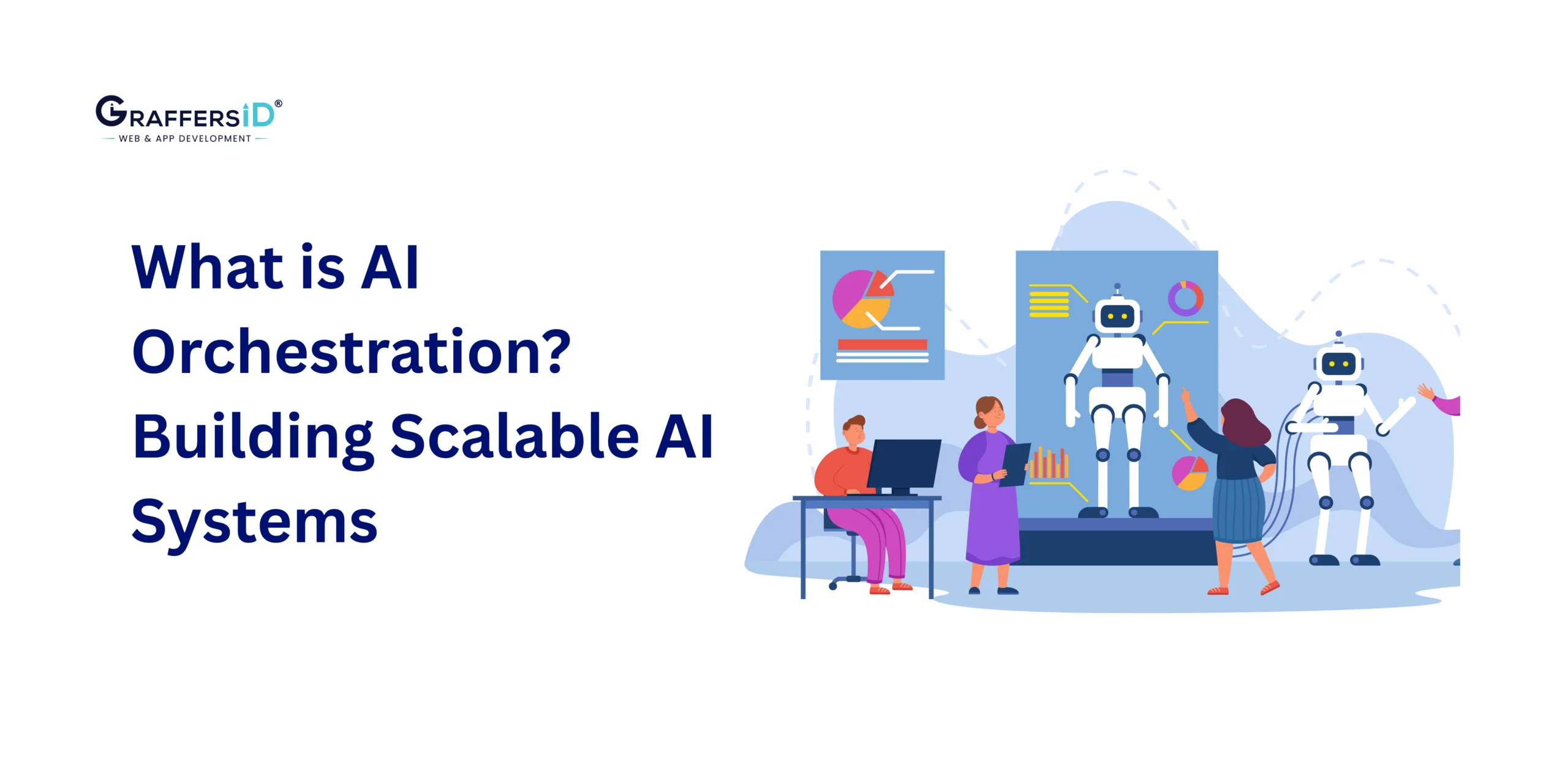In today’s world, artificial intelligence (AI) is no longer an experiment for companies but a crucial part of many businesses. The demand for skilled professionals to build and manage AI systems has risen as more companies have started to invest in AI projects. This creates a high demand to hire machine learning engineers. A recent McKinsey survey found that 78% of companies now use AI in at least one part of their business. That’s up from 72% earlier this year and 55% in 2023. The use of generative AI has jumped, too, from 55% in 2023 to 75% in 2024. It shows how fast these tools are being put to work in real-world situations.
Finding the right people for these jobs matters a lot. A good machine learning engineer doesn’t just write code, they also understand how things work inside a company and how to work with other teams. The wrong hire could slow everything down and waste time and money. In the next sections, we’ll look at how to spot strong candidates, what skills to focus on, and how to bring them into your team the right way.
Understanding the Role of a Machine Learning Engineer for Scalable AI
Before hiring a machine learning engineer, you should be clear about what a machine learning engineer actually does and how their job is different from similar roles. Data scientists usually spend their time testing ideas, building algorithms, and pulling insights from data. ML engineers, on the other hand, take those early versions and turn them into working systems. They write the code that gets models into production, set up data pipelines, and make sure everything fits smoothly into existing software setups.
Read More: What Is Machine Learning? Definition, How It Works, Types & Business Applications in 2026
Reports from tech industry sources often group ML engineers with data scientists, AI researchers, and product managers as some of the most sought-after professionals in AI. That’s because they’re the ones who turn research into real tools people can actually use.
A strong ML engineer doesn’t just care if a model works in a test, they focus on whether it holds up in the real world, runs efficiently, and can be updated or maintained over time. To do that, they need solid software engineering skills, experience with different types of infrastructure (both cloud and local), and a good grip on tools that help manage the full ML development process.
Technical Skills & Expertise an ML Engineer Must-Have
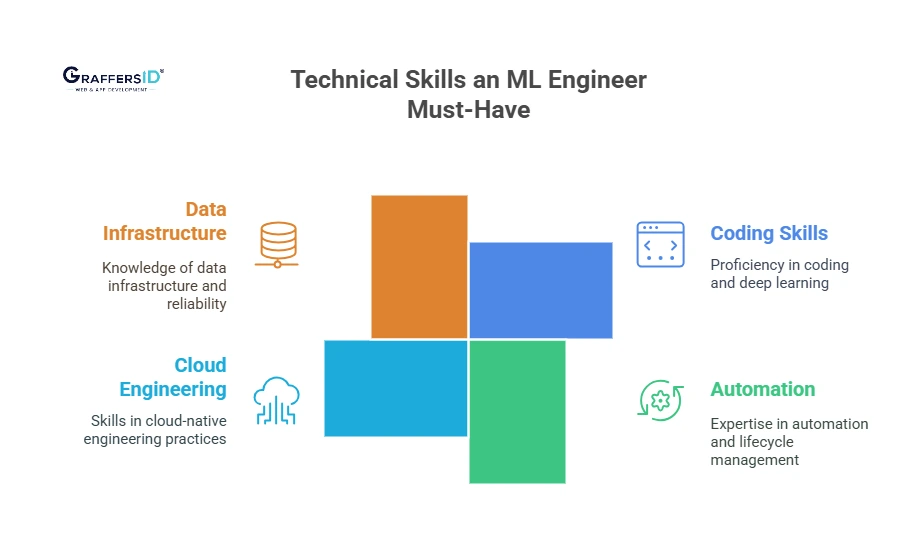
Attracting top-tier machine learning talent starts with a well-crafted role description. A clear, compelling job listing is more than just a list of responsibilities, it’s your first opportunity to engage the right candidates.
Machine learning engineers play a key role in taking AI systems from testing to full production. They need a mix of skills. Strong coding abilities are essential. Experience in building reliable data pipelines is also important. Engineers should have a solid grasp of MLOps (machine learning operations). Their tasks include launching models in cloud or edge environments. They monitor model performance and make improvements when necessary. These engineers work where innovation meets practical use.
To help you find the right candidate, it’s helpful to break down the key skills you should look for:
- Strong coding skills and experience with deep learning
- Knowledge of automation and lifecycle tools
- Experience with cloud-based development & deployment
- Ability to handle and clean large datasets
Each of these areas is essential to the role. Here’s a breakdown of what they mean:
1. Coding Skills & Deep Learning Frameworks: Candidates must be comfortable with Python and Java. They should also have experience with AI libraries like TensorFlow or PyTorch. These tools speed up testing and help build models that perform well in real-world settings.
2. Automation & Lifecycle Management: Knowledge of MLOps platforms such as MLflow or Kubeflow shows strong operational skills. These platforms simplify model training, packaging, deployment, and performance monitoring. They help maintain quality as the system evolves.
3. Cloud-Native Engineering: Experience with cloud services like AWS SageMaker, Google Cloud AI Platform, or Azure ML is valuable for building scalable and maintainable AI systems. Engineers familiar with these platforms can better integrate AI into their existing technology setup.
4. Data Infrastructure & Reliability: Strong candidates know how to build reliable data pipelines, manage data versions, and ensure data quality. Familiarity with tools like Apache Airflow or Delta Lake helps keep data clean and traceable throughout the machine learning process.
Finally, don’t forget about compensation transparency. This can help set a fair salary range and benefits package that aligns with industry standards and reflects the importance of the role in your company.
Compensation Benchmarks: Machine Learning Engineer Salaries
Understanding the compensation landscape is crucial for attracting and retaining top developers. Below is a comparative table highlighting average salaries for ML engineers across various platforms:
| Source | Average Salary (USD) | Noted |
| Indeed | $162,297 | Based on 3.2K salaries reported as of January 2026 |
| Glassdoor | $190,292 | Median total pay in the Information Technology Sector |
| Wellfound | $127,667 | Average salary across varying experience levels |
| AIJobs.net | $194,000 | Median salary based on 4,223 reported salaries in 2024 |
Note: Salaries can vary significantly based on experience, location, and industry.
Evaluating Soft Skills & Team Fit of an ML Engineer
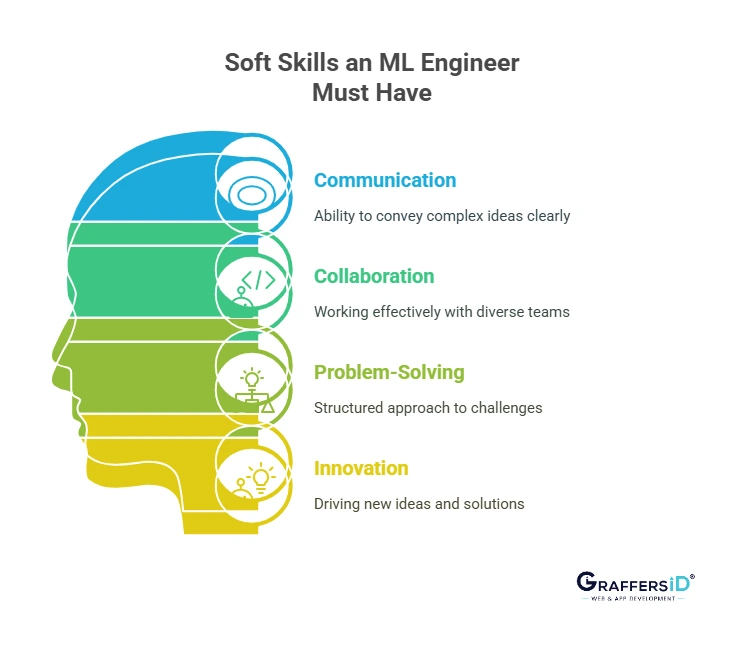
Building and scaling AI systems requires more than just technical know-how. While skills in data engineering, model deployment, and MLOps are still key, it’s the mix of technical abilities and soft skills that truly makes a machine learning engineer successful.
In fact, soft skills are becoming more important in tech hiring. A recent LinkedIn survey of global leaders found that 90% of executives believe soft skills are more important than ever for driving innovation. For machine learning engineers, this means excelling not just in model accuracy or algorithm optimization but in how they interact with ML annotation teams, data scientists, and developers; translate complexity for stakeholders; and guide ideas from inception to impact, so-called cross-functional communication.
Engineers who do well in these roles are great communicators, able to break down complicated machine learning concepts in a way that everyone can understand. They also approach problems in an organized way, breaking down business challenges into experiments that can be tested and improved upon.
Soft skills for machine learning (ML) engineers are crucial for bridging the gap between technical expertise and business objectives. So, when hiring ML engineers, it’s important to assess these skills alongside their technical expertise.
Read Also: AI Hiring: Transforming Talent Acquisition for Tech Teams
Where to Find Skilled Machine Learning Engineers
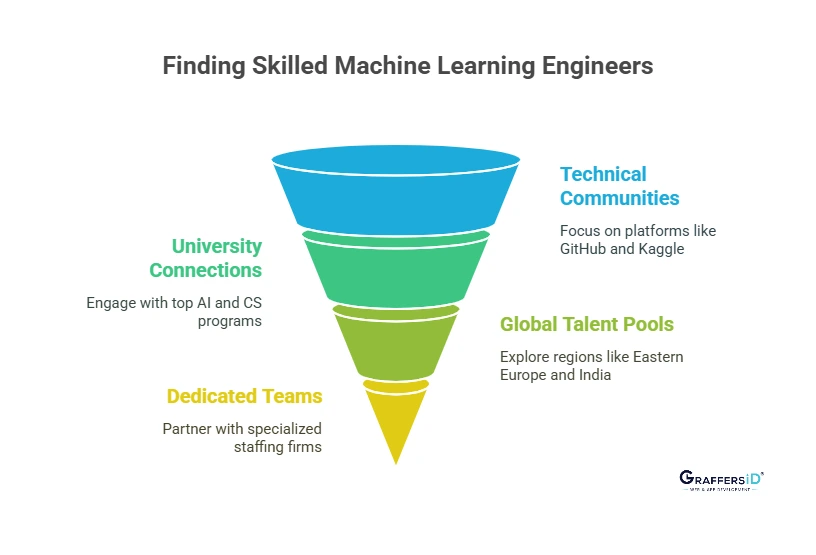
Finding skilled machine learning engineers requires more effort than simply advertising the position on a general job board. Even though LinkedIn, Indeed, and Glassdoor are flooded with applicants, very few of them have the AI-sculpting competencies required to be AI project candidates. Instead, companies have to focus their search on the domains and platforms where these professionals are currently employed if they wish to obtain the appropriate expertise.
A good strategy is to focus on technical communities like GitHub, Stack Overflow, and Kaggle. These sites attract engineers who don’t just talk about machine learning, they build projects, share their work, and even compete with others.
Universities are another great source of talent, so trying to build connections with top universities, especially those with strong AI or computer science programs, can help find up-and-coming engineers who are learning the latest methods.
With more companies embracing hybrid and remote work, the options for hiring ML engineers are much wider. Highly skilled professionals are available in places like Eastern Europe, India, and Latin America. These regions have become strong players in AI and software engineering, thanks to good education systems and growing tech industries.
For companies that want to hire faster, a great idea will be to work with dedicated development teams and firms. Mobilunity, a staffing company based in Ukraine, offers such services and could find top talent for AI and machine learning projects.
Read More: The Impact of Artificial General Intelligence (AGI) on Tech in 2026
How the Right Hire Drives Scalable and Sustainable AI Success
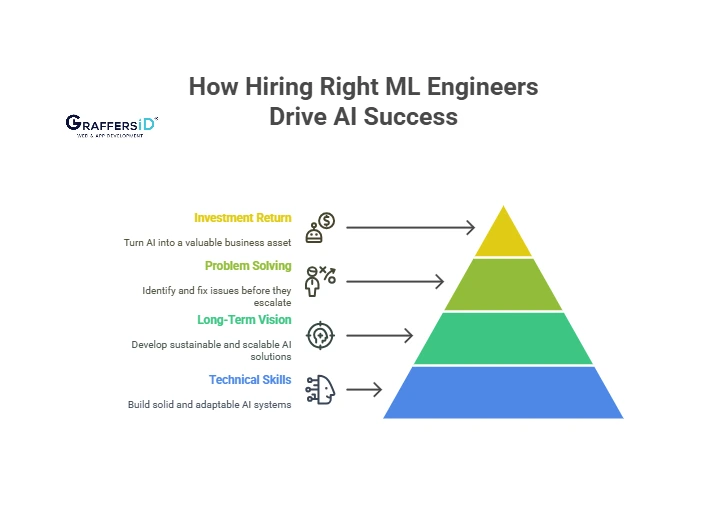
Hiring the right person for your AI team is key to long-term success. AI can be complex. The right hire will have the technical skills to build solid systems. They will also know how to adapt solutions as the company grows. This makes it easier to keep up with changing needs.
A skilled AI expert looks beyond short-term solutions. They will think about how to make systems that last. They spot issues early and work on fixing them before they become problems. This helps to avoid costly mistakes or systems that are hard to scale. Without the right talent, businesses can end up with AI tools that are not easy to expand or maintain.
The business sees a better return on its investments when the right person takes charge of AI projects. So, the right hire can turn AI into a valuable asset, supporting the company’s success for years to come.
Conclusion
Hiring a machine learning engineer is not an easy task since it requires not only testing technical skills but also considering soft skills to find the right and long-term person for your team. Each step in the hiring process matters, from setting clear job expectations to using the right platforms to find candidates. Understanding the role of ML engineers for your company can build teams that don’t just get things done, they drive innovation. This helps businesses lead the AI revolution, not just follow it.

